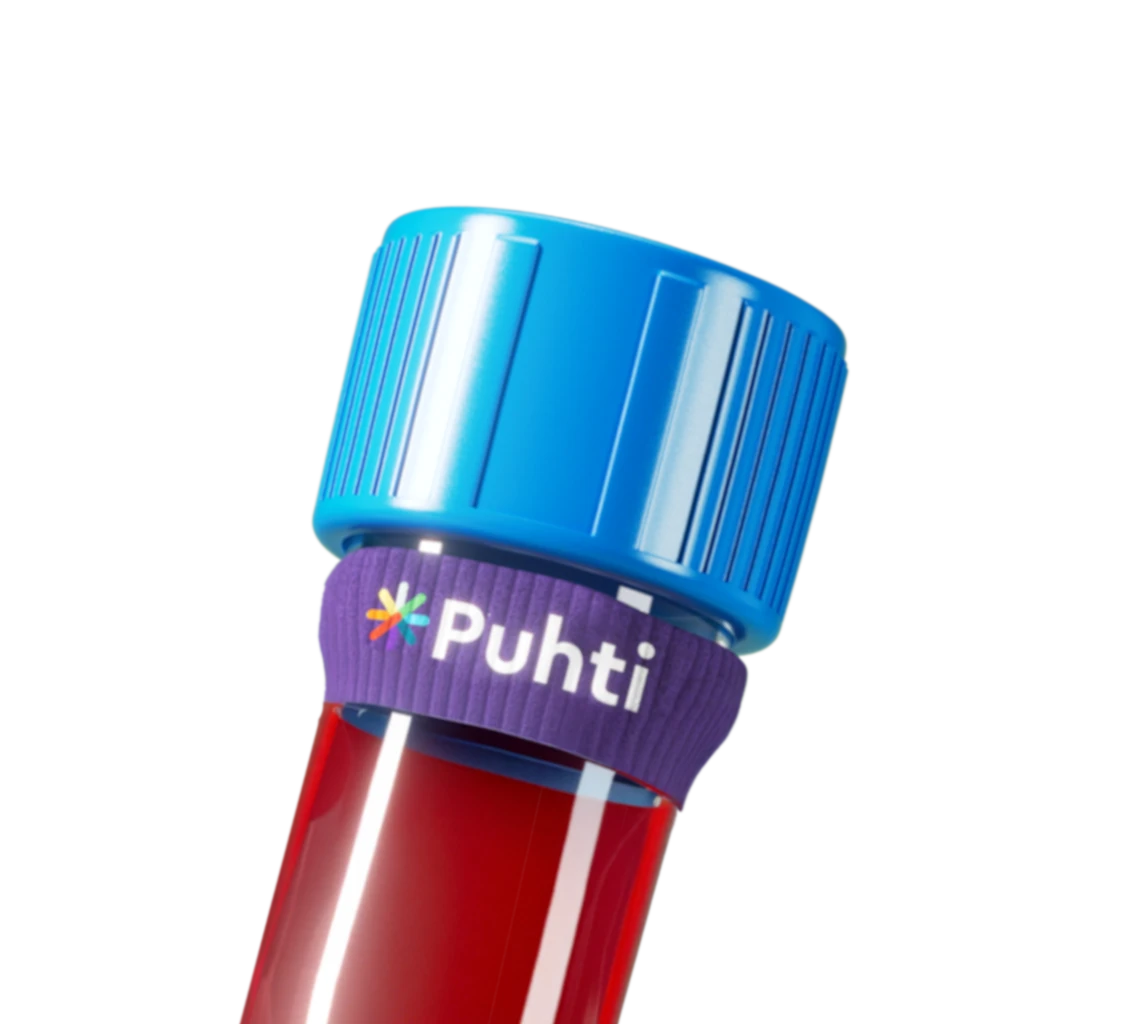
Basophils are white blood cells (B-Baso, L-Baso%)
Basophils are white blood cells that fight parasitic diseases, prevent unnecessary blood clotting, and mediate allergic reactions.

Basophils are white blood cells (B-Baso, L-Baso%)
Basophils are white blood cells that fight parasitic diseases, prevent unnecessary blood clotting, and mediate allergic reactions.
Basophils
- Basophil is one type of white blood cells produced by the bone marrow.
- Basophils protect us from parasitic diseases.
- The B-Baso test measures the level of basophils in the blood.
What are basophils?
Basophils are white blood cells produced by the bone marrow. White blood cells are an important part of our immune system helping to protect the body against pathogens.
Basophils protect us from parasitic diseases, prevent unnecessary blood clotting, and mediate allergic reactions.
The reference values for basophils
B-Baso
Reference value for B-Baso in adults is 0–0.1 E9/l.
L-Baso%
L-Baso% test shows the relative percentage of basophils in lymphocytes.
L-Baso% value is calculated in connection with the leukocyte differential (B-Diffi) test in a complete blood count. B-Diffi should be done when the number of leukocytes in the blood is elevated.
The reference value for L-Baso % in adults is <1%.
What does a low basophil count mean?
Low basophil count can be caused by
- Hyperthyroidism
- Infections
- Acute allergic reactions
What does a high basophil count mean?
High basophil count can be caused by
- Hypothyroidism
- Myeloproliferative disorders, such as polycythaemia vera, essential thrombocythemia, and myelofibrosis. These are blood diseases in which the bone marrow produces too many red blood cells, platelets, or white blood cells.
- Leukemia
- Autoimmune disease





